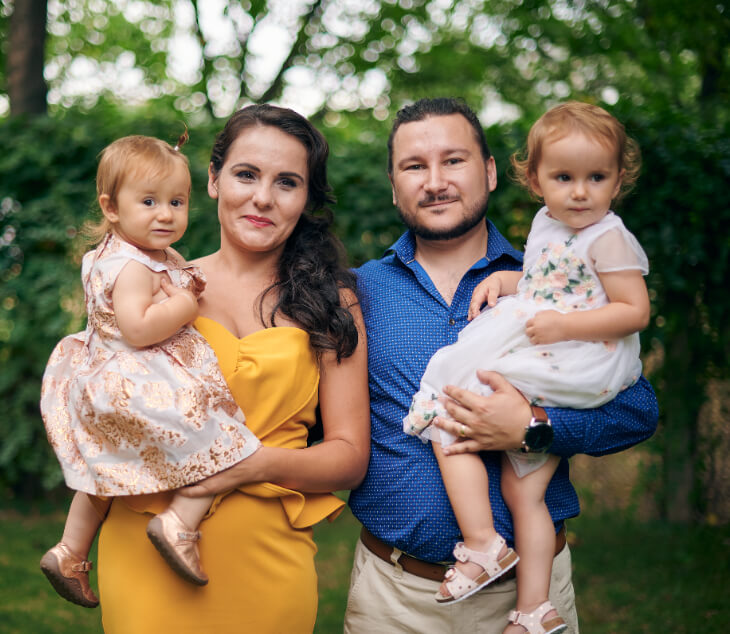One day workshop for parents
*Up to 20 people
Our one day workshop offered by BeesyMum would like to provide staff that work along young children (birth to 7 years old) with evidence based knowledge to develop their theoretical and practical understanding of how to assess and manage behavioural sleep difficulties in young children.


Empowering Nursery Staff with Expert Sleep Knowledge :
Practical skills and strategies for better sleep support.
This is an opportunity for you to enhance your sleep knowledge, add skills to your current professional tool box and tap into our many years of experience. The content will focus on practical issues relating to sleep assessment and identify interventions to assist parents.
Workshop Objectives
- Provide nurseries staff with up-to-date evidence based knowledge to develop their theoretical and practical understanding of sleep needs, sleep patterns, sleep cycles and common difficulties;
- Support nurseries staff to enhance their confidence, skills and knowledge base in providing guidance to parents regarding sleep difficulties in young children;
- Provide an overview of evidence based interventions used to help behavioural sleep difficulties in young children.
Price: £140

Workshop Goals
With the use of assessment tools – by the end of the day each staff will be able to:
- Understand typical sleep regulations, sleep needs and sleep cycles;
- Understand common sleep difficulties;
- Provide education to families on establishing good sleep hygiene, and provide anticipatory advice in the prevention of sleep difficulties;
- Understand how to undertake a sleep assessment for an infant and child, incorporating a sleep history and the use of a sleep diary;
- Gain an understanding of common sleep interventions used to help behavioural sleep difficulties in babies and young children.
Frequent Asked Questions
General Approach
Sleep shaping is a gentle, responsive approach to helping babies develop healthy sleep habits based on their natural rhythms and individual needs. Unlike traditional sleep training, which often relies on rigid methods and a short timeframe, sleep shaping focuses on gradual adjustments to the child’s sleep environment, schedule, and associations. It respects the baby’s developmental stage and allows for flexibility, ensuring that the process is as comfortable as possible for both the child and the parents. When needed, I collaborate with medical consultants, nutritionists, and therapists to address underlying issues such as feeding challenges, health concerns, or parental mental health.
My work is built on empathy, evidence-based practices, and respect for the child-parent bond. I prioritize the well-being of the entire family, focusing on creating personalized sleep plans that align with the child’s unique needs and the parents’ values. I also recognize the importance of working alongside specialists—such as lactation consultants, nutritionists, and therapists—to provide holistic support, including addressing postnatal depression, feeding difficulties, and family dynamics.
Every child is different, with their own temperament, sleep needs, and developmental timeline. A one-size-fits-all approach often overlooks these critical factors, leading to frustration and limited success. Individualized sleep plans allow me to address each family’s unique circumstances. If additional challenges arise, such as feeding issues or postpartum recovery for parents, I consult with relevant professionals to ensure a well-rounded approach.
Understanding the Child
I approach these challenges with a combination of patience and problem-solving. For regressions, I focus on maintaining a consistent routine while offering extra comfort as needed. For colic or reflux, I consider medical input and suggest adjustments to feeding and positioning. Sensory sensitivities are addressed by creating a soothing sleep environment tailored to the child’s preferences, such as dim lighting or gentle white noise.
These factors are central to my recommendations. For example, respecting age-appropriate wake windows helps prevent overtiredness, which can disrupt sleep. Understanding sleep cycles allows me to guide parents in supporting their child through transitions between cycles. Developmental leaps often bring temporary sleep regressions, and I work with families to adapt strategies during these periods while maintaining consistency. If I notice feeding-related or health-related disruptions, I coordinate with nutritionists or healthcare providers to address these underlying factors.
Role of Parents
Supporting the child’s sleep is intrinsically linked to the parents’ well-being. I aim to create a plan that improves the child’s sleep while being realistic for the parents to implement. If parents are struggling with postnatal depression, anxiety, or exhaustion, I encourage them to seek support from therapists or counselors. By collaborating with professionals who specialize in maternal and paternal mental health, I ensure that the entire family receives the care they need to thrive.
I respect parents’ concerns and explain that my approach does not rely on leaving a child to cry alone. Instead, I focus on responsive strategies that support the child’s emotional and physical needs while gradually encouraging independent sleep. I also work closely with mental health professionals when parents feel overwhelmed, ensuring they have the tools and emotional support to make confident decisions.
Methods and Techniques
I recommend incremental changes, such as moving the feeding session earlier in the bedtime routine or introducing a transitional object like a comforter. These steps allow the child to adapt at their own pace, minimizing stress while fostering independent sleep skills. When necessary, I consult with lactation consultants or nutritionists to ensure feeding adjustments align with the child’s nutritional needs.
I use methods like the gradual retreat technique or pick-up/put-down, which involve staying present and responsive as the child learns to settle. These approaches build confidence and security, fostering independent sleep in a supportive way. If parents feel anxious about the process, I involve therapists or counselors to address their concerns and provide emotional reassurance.
Sleep needs evolve as children grow, and I work with families to adjust plans accordingly. For example, teething or illnesses may require temporary changes, like extra comfort or altered schedules. I also guide families in recognizing when new milestones, like starting daycare or transitioning to a toddler bed, may impact sleep. In cases where challenges are more complex, I collaborate with pediatricians, therapists, or nutritionists to provide comprehensive solutions.
Better sleep in TWO
weeks almost perfect in ONE MONTH!
Tired of endless crying and fussing? Establish healthy sleep habits for your little one in just one month!
Meet the Sleep Expert
- Certified Sleep Consultant in the UK
- Over 15 years-experienced EYFS& SENCO Teacher (additional needs)
- Mother of two beautiful girls
- Passionate about helping families achieve better sleep member of European Sleep Research Society
- Committed to providing personalised and effective sleep solutions
- Ready to work with you to improve your child's sleep and bring peace to your home.

Alexandra Pache

